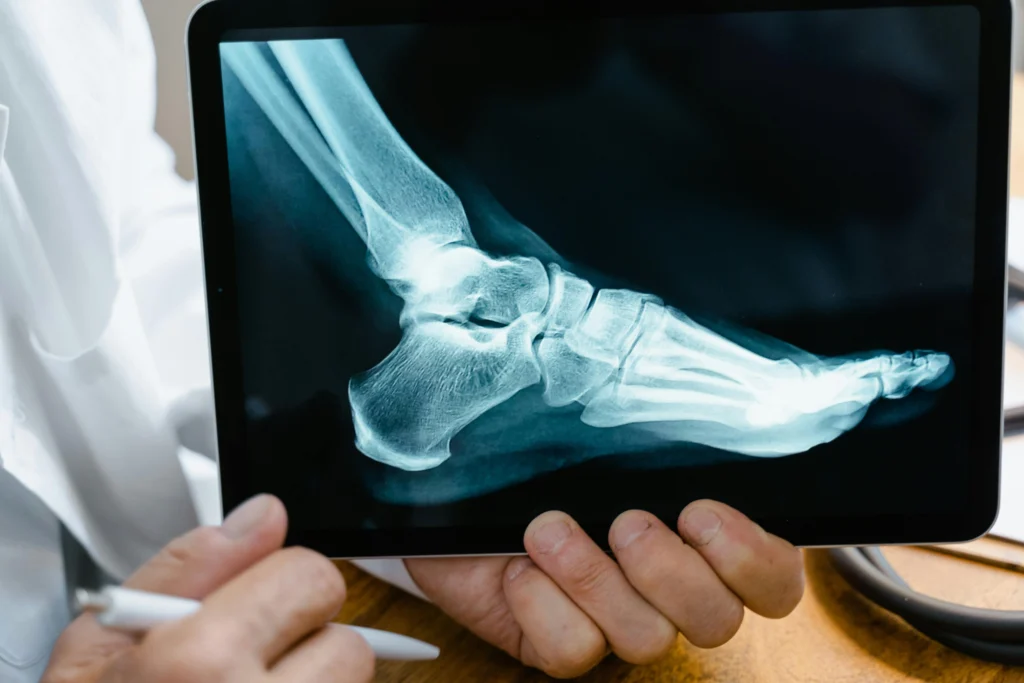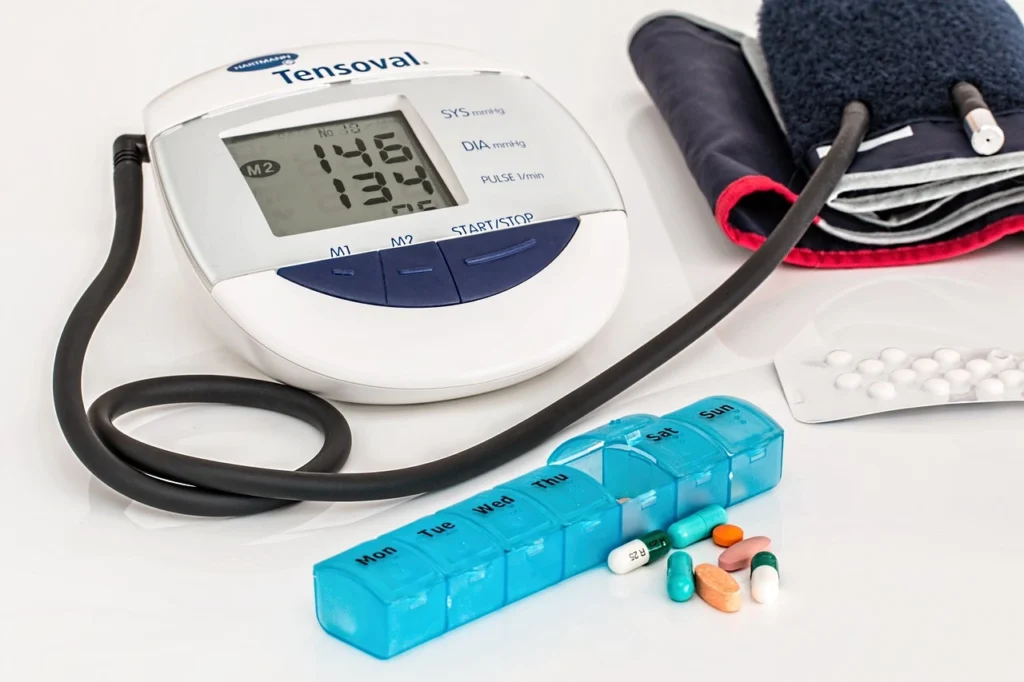Here’s your guide to a plant-based diet for autoimmune diseases.
It’s incredible when you stop to think about how intricate our bodies are.
Sometimes, our immune system, which protects us, gets confused. It may start attacking our healthy cells.

https://www.pexels.com/Tima Miroshnichenko
Autoimmune diseases impact many people worldwide. Here’s what happens in these conditions.
I’ve been looking into different ways to support my body, and the role of what we put on our plates has stood out.
Our lifestyle choices, especially our diet, can play a significant part in managing these conditions. That’s where a plant-based diet comes into the picture—a way of eating that shows real promise.
In this article, I’ll explain the fantastic benefits of a plant-based diet. We’ll examine the science, offer practical tips, and highlight key points for autoimmune health.
First Things First: What Exactly Do We Mean by a Plant-Based Way of Eating?
Now, when I say “plant-based diet,” I don’t just mean munching on a salad here and there. It’s more about making whole, unprocessed plant foods the stars of our meals.
Picture bright fruits, colourful veggies, hearty grains, filling legumes, crunchy nuts, and healthy seeds. These become the foundation of what we eat.
Animal products like meat, poultry, fish, dairy, and eggs play a minor role. In some cases, they are even excluded.
People have different ways to approach this.
Some choose a strict vegan diet, while others prefer a vegetarian path. What stands out in autoimmune health is a whole-food, plant-based approach. This emphasises the minimally processed goodies nature provides.
Peeking Behind the Curtain: The Science Connecting Plant-Based Diets and Autoimmune Responses
Okay, so how does eating plants help with autoimmune conditions?
The science is fascinating.
For starters, plant-based diets are a powerhouse of inflammation fighters.
These foods are full of antioxidants, which act like superheroes, fighting the damage from oxidative stress. They’re also packed with phytonutrients, natural compounds in plants with potent anti-inflammatory effects.
Plant-based diets usually have less saturated fat than diets high in animal products. They also reduce compounds in animal foods that can cause inflammation.
But that’s not all! Our gut health is a big player in all of this, and a plant-based diet and gut health can be a real game-changer here, too.
Plant foods are full of fibre.
This fibre feeds the good bacteria in our gut. As a result, it helps create a happy and balanced gut microbiome. And guess what? Our gut and our immune system are super connected!
A healthy gut can help our immune system work properly. Plant-based diets help maintain our gut barrier, which is key for smooth digestion. Some plant foods also serve as prebiotics and probiotics, helping improve our gut health.
Let’s discuss how a plant-based diet and immune modulation might work. Plants are full of vitamins and minerals for our immune systems.
New research shows that some plant compounds can help control our immune responses. They can fine-tune these responses.
Studies have demonstrated that switching to a diet high in plants changes vital signs of inflammation in the body.
How a Plant-Based Diet Can Help You Deal with Autoimmune Problems
The benefits of a plant-based diet for autoimmune conditions are significant.
One of the big ones is the potential for reduced inflammation with a plant-based approach. Studies show that plant-heavy diets can lower the inflammatory markers we discussed. In real life, this means less pain, less swelling, and more comfort in your skin.
Then, plant-based eating has an incredible impact on improved gut health. Research shows that plant-based diets can change our gut bacteria for the better. Many say they feel better digestion and have less tummy trouble after switching.
Plant-based nutrition may help manage symptoms and modify the disease.
Source: Capsa
A plant-based diet isn’t a cure.
However, it may help lower disease activity in some autoimmune conditions. I’ve seen inspiring stories of people who found relief from their symptoms. They reduced their need for medication by eating more plant-based foods.
Adopting a plant-based lifestyle boosts health and well-being, not just for autoimmune issues.
Consider this: you can reduce your risk of autoimmune diseases like heart issues. Many say they feel more energetic and enjoy a better quality of life after making this shift.
Power Foods: The Plant-Based Heroes for Autoimmune Health
So, if we’re going plant-based for autoimmune support, what real MVPs should we focus on?
Think about anti-inflammatory fruits. Juicy berries, bright citrus fruits, and tropical pineapple are great options.
Broccoli, kale, and Brussels sprouts are all cruciferous and leafy greens full of nutrients.
Plant sources are rich in omega-3.
These include flaxseeds, chia seeds, walnuts, and algae-based supplements. Nutrient-packed legumes like lentils, chickpeas, and black beans are also fantastic.

For your grains, consider whole grains (with gluten-free options) like quinoa, oats, and buckwheat.
Let’s not forget the healthy fats from avocados, olive oil, nuts, and seeds. Fermented foods such as kimchi, sauerkraut, and plant-based yoghurt are suitable for a happy gut.
Turmeric, ginger, and garlic are some herbs and spices that taste good for you. They can help lower inflammation and improve your meals.
Steering Clear: Foods to Maybe Take a Step Back From on a Plant-Based Diet for Autoimmune Health
Some foods can be tricky when we follow a plant-based diet for autoimmune health.
Processed foods and additives can cause inflammation, so it’s best to limit them. Refined sugars, which are known to fuel inflammation, should also be avoided.
Unhealthy fats and processed oils can also harm our immune system and cause inflammation.
Many diets include animal products like meat, dairy, and eggs. However, these can be high in saturated fat and may trigger inflammation in some people.
Some foods may trigger reactions in individuals. These include nightshade vegetables, gluten, soy, nuts, and seeds. An elimination diet can help identify these personal sensitivities.
Lastly, watch how alcohol and caffeine may impact your inflammation and gut health.
Practical Tips for Starting a Plant-Based Diet for Autoimmune Issues
Okay, so you’re intrigued. How do you start incorporating more plant-based foods?
You can make a gradual transition or an immediate change—whatever feels most sustainable for you. I’ve found that having a good meal plan and preparation tips for a plant-based diet helps. It takes the guesswork out of things.
It’s essential to meet nutritional needs. Focus on key nutrients like:
- Vitamin B12
- Vitamin D
- Iron
- Omega-3s
- Calcium
- Zinc
Talk to a healthcare professional. Then, consider supplements for a plant-based diet. A big part of it is getting good at reading food labels and making informed choices.
Healthcare professionals and registered dietitians can genuinely assist you on this journey.
Exploring a Specific Approach: The Plant-Based Side of the Autoimmune Protocol (AIP) Diet
You might have heard of the Autoimmune Protocol (AIP) diet.
It’s an elimination diet. Some people find it helpful for managing autoimmune conditions. From a plant-based view, the AIP diet emphasises allowed fruits, vegetables, and healthy fats.
This means you should temporarily avoid some plant foods. Nightshades and seeds may cause problems.
The plan is to have a reintroduction phase later. This will help you determine which foods might be making you sick.
A plant-based AIP diet can be strict, but some people with autoimmune conditions find it helpful.
Real Stories, Real Hope: The Positive Effects of Plant-Based Diets on Autoimmune Disease
Success stories about plant-based diets and autoimmune diseases are very inspiring.
Some people have reported significant drops in their symptoms. They needed less medication and felt much better, and this happened just by changing their diet.
These stories show how diet can help with autoimmune conditions. They remind us that each journey is unique, but real hope exists.
It highlights the need for personalised methods and patience to find what suits our bodies best.
Potential Challenges and Things to Consider with a Plant-Based Diet for Autoimmune Issues
Of course, it’s essential to be aware of potential hurdles.
Ensuring adequate nutrient intake requires some planning and sometimes supplementation. It can also involve navigating social and lifestyle adjustments.
It’s essential to clear up any misunderstandings about plant-based diets you may find.
Everyone’s body is unique.
So, it’s normal for people to react differently to diet changes. That’s why ongoing monitoring and guidance from healthcare professionals are crucial.
Your Questions Answered: Frequently Asked Questions (FAQ)
Can a plant-based diet cure autoimmune disease?
A plant-based diet can help manage symptoms and may even lead to remission for some people. However, it is not seen as a cure for autoimmune diseases. It’s more about managing the condition and improving your quality of life.
Is a vegan diet the same as a plant-based diet for autoimmune conditions?
Not exactly. A vegan diet excludes all animal products. A plant-based diet, on the other hand, emphasises whole, unprocessed plant foods. This approach can help improve autoimmune health. However, someone on a vegan diet might still consume processed vegan foods that are less beneficial.
What are the first steps to starting a plant-based diet for autoimmune disease?
I recommend gradually incorporating more plant-based meals into your week. Try new recipes, focus on whole foods, and keep a food journal. This way, you can note how different foods affect your feelings.
Is it okay to eat a diet based on plants if you have an autoimmune disease?
If not well-planned, there’s a potential for nutrient deficiencies. Be aware of your nutrient intake. If necessary, think about supplements, but consult a healthcare professional first.
How long does it take to see the benefits of a plant-based diet on autoimmune symptoms?
It depends on the person. Some people might see results in a few weeks, while others might have to wait longer. Consistency and patience are key.
Do I need to avoid gluten on a plant-based diet for autoimmune disease?
Not necessarily for everyone. However, researchers have linked some autoimmune conditions to gluten sensitivity. It might be something to explore with your doctor or a dietitian if you suspect it’s an issue.
Where can I find plant-based recipes for autoimmune-friendly meals?
You can find many great resources for plant-based eating online, in cookbooks, and through apps. Look for recipes that use whole, unprocessed foods.
Should I work with a healthcare professional when starting a plant-based diet for autoimmune disease?
Absolutely! Before making significant dietary changes, talk to your doctor or a registered dietitian. This is especially important if you have an autoimmune condition. They can provide personalised guidance and help you meet all your nutritional needs.
My Final Thoughts: Embracing the Potential of Plant-Based Eating for Autoimmune Wellness
A plant-based diet shows great promise for our health, especially with autoimmune diseases.
It’s not just about removing some foods. It’s about filling our bodies with nutrient-rich, anti-inflammatory plants.
We’re taking a holistic and individualised approach to our well-being.
Plant-based eating is a great way to support other methods for managing autoimmune conditions.
New research shows a strong link between diet and autoimmune health. I’m excited about how plants can help support our bodies from within.


